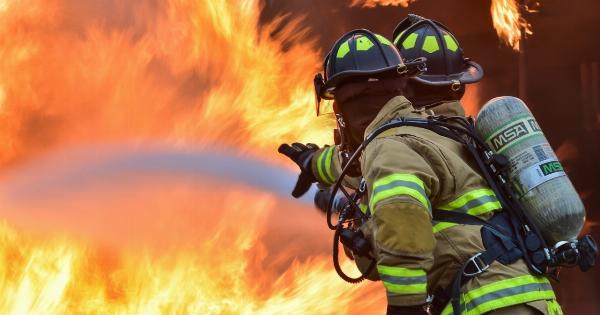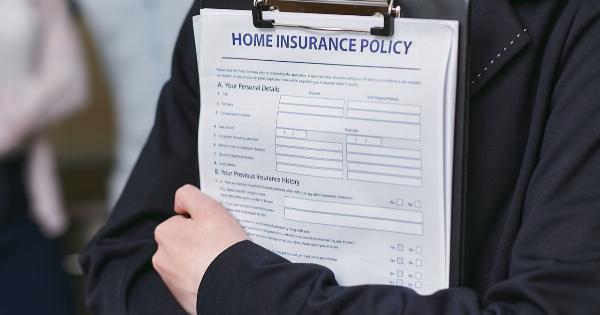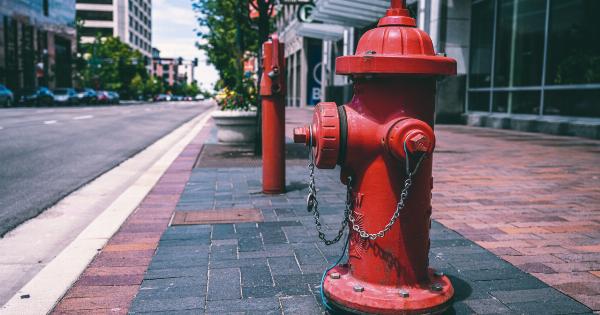When it comes to fire emergencies, being prepared is crucial. While having a well-thought-out evacuation plan and practicing fire safety measures are important, another essential aspect to consider is your insurance policy.
In the unfortunate event of a fire, having the right insurance coverage can provide much-needed financial assistance and peace of mind. This article will guide you through the process of preparing for fire emergencies by understanding and optimizing your insurance policy.
1. Assess Your Current Coverage
The first step in preparing for fire emergencies is to evaluate your current insurance coverage. Review your homeowner’s or renter’s insurance policy and check if it includes fire damage coverage.
Take note of the specifics, such as the coverage limits, deductible, and any additional endorsements or riders related to fire incidents.
2. Understand Policy Exclusions
Familiarize yourself with any exclusions mentioned in your insurance policy. Certain perils or circumstances might not be covered, so it’s crucial to know what situations may result in denial of coverage.
For example, some policies may not cover fires caused by arson or wildfires in certain regions.
3. Consider Additional Coverages
Depending on your circumstances and location, you might want to consider additional coverages that specifically address fire emergencies. These can include but are not limited to:.
a) Replacement Cost Coverage
This coverage ensures that you can replace your damaged or destroyed belongings with new items of similar quality and value, rather than receiving only the actual cash value.
b) Additional Living Expenses Coverage
If your home becomes uninhabitable due to fire damage, this coverage helps cover the costs of temporary housing, meals, and other necessary living expenses.
c) Inflation Guard Endorsement
This endorsement adjusts the coverage limits of your policy over time to account for inflation and ensure your coverage is adequate.
d) Water Damage Coverage
Water damage caused by firefighting efforts can be extensive. Confirm if your policy covers water damage resulting from fire emergencies and to what extent.
e) Extended Replacement Cost Coverage
With this coverage, your insurance company would cover rebuilding costs even if they exceed your policy’s limits, providing a higher level of protection.
f) Wildfire Coverage
If you live in an area prone to wildfires, consider a specialized wildfire insurance policy that provides coverage against specific wildfire risks.
4. Document Your Belongings
In the event of a fire, it can be challenging to remember all the possessions that were lost or damaged. Take inventory of your belongings by creating a detailed list and capturing photographs or videos of each item.
Keep these records in a safe place or store them digitally in the cloud. This documentation will significantly assist during the claims process.
5. Conduct a Home Fire Safety Assessment
Proactively safeguard your home against fire emergencies by conducting a thorough fire safety assessment. Install smoke detectors on each floor and test them regularly. Ensure you have fire extinguishers in key locations and that they are well-maintained.
Eliminate any potential fire hazards, such as overloaded electrical outlets or flammable materials near heat sources.
6. Communicate with Your Insurance Agent
If you have any questions or concerns about your insurance coverage for fire emergencies, don’t hesitate to reach out to your insurance agent. They can provide valuable guidance and help tailor your policy to meet your specific needs.
They may also suggest additional endorsements or coverages you might want to consider based on your location or property type.
7. Review and Update Regularly
Insurance needs can change over time, so it’s essential to review and update your policy regularly. Factors such as renovations, acquiring valuable items, or changing regional fire risks can impact your coverage requirements.
Stay proactive by reviewing your insurance policy annually or whenever a significant change occurs in your life.
8. Keep Important Documents Safe
In the aftermath of a fire, essential documents like your insurance policy, identification documents, financial records, and proof of ownership can be damaged or lost.
Store physical copies in a fireproof and waterproof safe or consider keeping digital copies backed up securely in the cloud.
9. Conduct a Fire Drill
Prepare your household for a fire emergency by practicing a fire drill at regular intervals. Ensure that all family members know the escape routes, meeting points, and how to safely exit the house.
Practice staying low to avoid smoke inhalation and designate a responsible person to call emergency services.
10. Seek Professional Advice
When it comes to insurance policies and understanding your coverage, seeking professional advice is always a good idea.
Consult with a licensed insurance agent or a qualified insurance advisor who can provide expert insights and help you make informed decisions to protect your home and belongings.

























